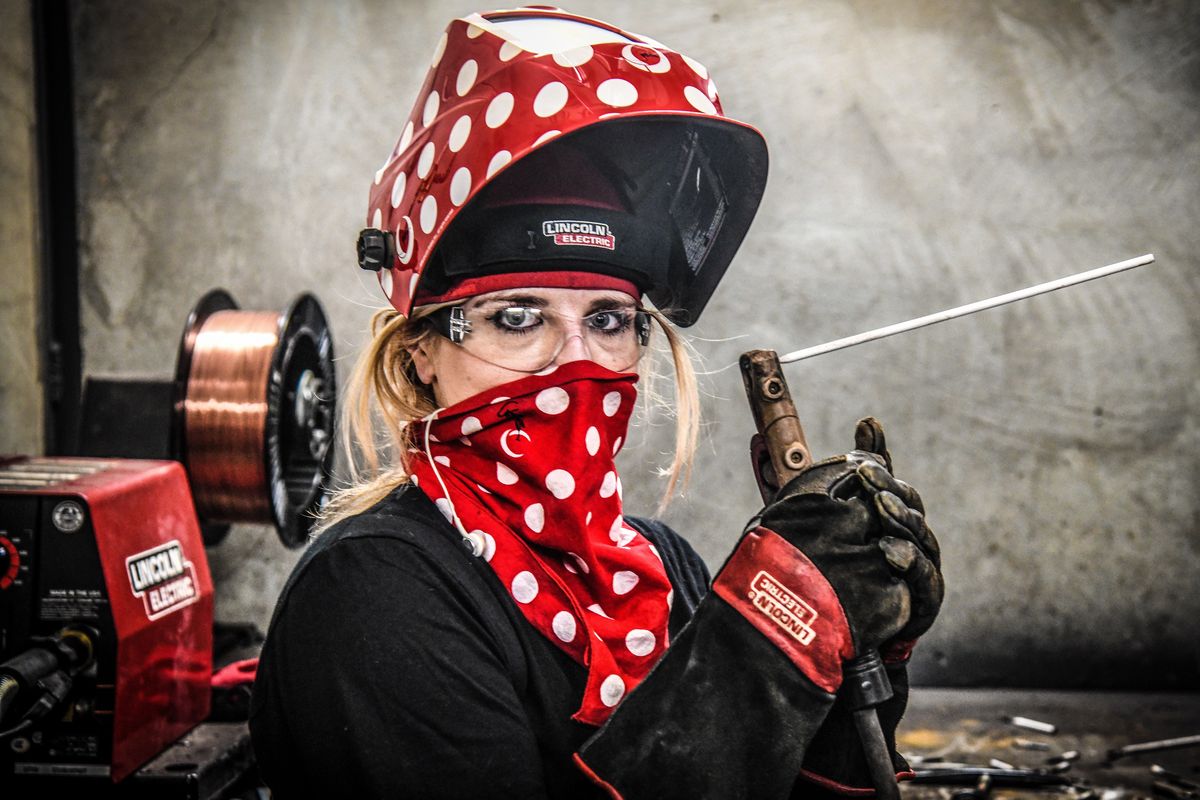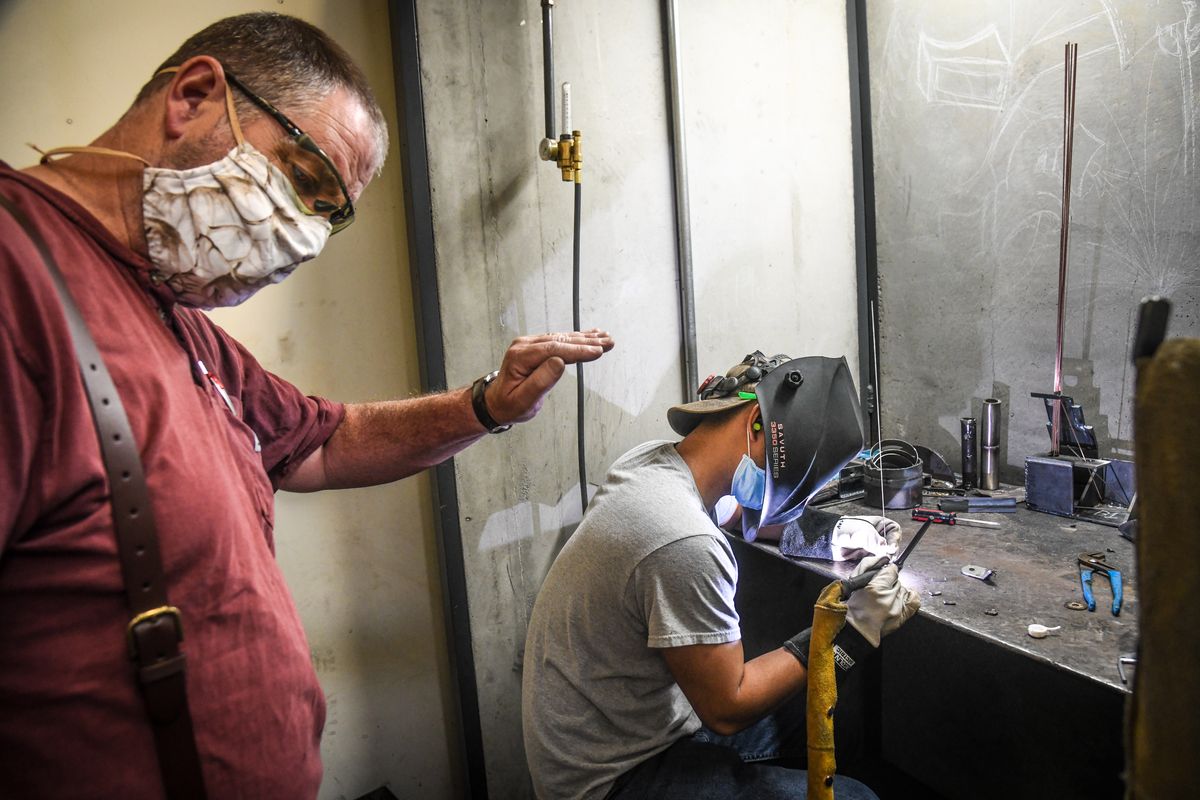Now adapted to COVID-19 protocols, Community Colleges of Spokane prep for winter quarter

For the Community Colleges of Spokane, fall was a tale of two approaches to learning amid the COVID-19 pandemic.
Spokane Community College provided roughly 60% of classes either in person or through a hybrid of in person and online – the most of any community or technical college in the state, leaders said. Attended by more than 8,300 students in the fall quarter, SCC mostly offers courses in vocational, technical, career and allied health fields.
Spokane Falls Community College was the opposite. College officials said approximately 84% of the school’s more than 4,200 students learned virtually in some capacity, with 66% of classes offered either online or through a hybrid model.

With the fall quarter concluded, leaders at both colleges said they have similar needs heading into the winter quarter, which starts Jan. 4.
Over the course of the fall quarter, which spanned from Sept. 21 to Dec. 11, the community colleges recorded 54 positive cases linked with SCC, 37 connected to SFCC and 25 cases linked with district support personnel not attached to a specific college, according to the district. Overall, the district has roughly 2,300 employees.
Community Colleges of Spokane only tracks cases in students, faculty and staff who informed the district when they were positive if they were on a campus or in any college and/or district offices, said Carolyn Casey, chief institutional advancement and external affairs officer. The district does not track cases involving online-only students and faculty or fully telecommuting staff.
The Community Colleges of Spokane’s COVID-19 protocols included required face coverings for on-campus students and staff, daily health attestations, required classroom spacing, installation of barriers, and increased sanitation. The college also advised those with symptoms to stay home, inform an instructor and consult the district website on when to return.
“No matter what we do, there’s an element of judgment,” said Jim Brady, Spokane Falls Community College’s new vice president of learning. “We do err on the cautious conservative side.”
Brady, who was announced Tuesday as the college’s new vice president, said a big focus this winter will be refining the communication involved when a student or someone else is out due to a coronavirus-related event.
Part of that process involves notifying Brady’s office – typically via an instructor – to determine when that person can return. While SFCC implemented that measure toward the start of the fall quarter, Brady said, the revision isn’t reflected on the district’s COVID-19 webpage.
“It illustrates the need to adapt general protocols to the needs of effective communication including students, faculty and those responsible for decisions,” Brady said in an email regarding the discrepancy. “Affirming clearance to return was a need that emerged as the quarter was underway.”
Brady said some students returned to class with other clearance, whether from a doctor or somebody else. He said the college is working to ensure his office makes that call on the college’s behalf.
Beyond that, Brady said Spokane Falls Community College is reviewing whether to share information with online instructors about whether students are COVID-19 positive.
“You have to be mindful about the information you share, but if we have word that a student is sick, we’ve gotten some feedback from faculty that that’s a good thing to have,” he said.
Across town, Spokane Community College President Kevin Brockbank said the college’s zero-tolerance policy has helped keep in-person courses going.
“We’re totally just working our tails off to make this happen, and it’s because we think we’ve got a responsibility to the community, a responsibility to our mission and we have a responsibility to our students,” said Brockbank, noting how SCC produces people trained in occupations critical to this pandemic, such as nurses and respiratory care technicians.
The college has recorded just two instances of COVID-19 that were transmitted on campus, Brockbank said.
“Going into winter quarter, I think the primary thing we want to do is really be strong in messaging how important these safety protocols are and how effective they have been for us,” he said. “I don’t think we are going to change our practice because it’s really worked well for us.”
Rob Sramek, an electrical maintenance student at Spokane Community College, said the college has come a ways since the “hellaciously crazy time period” when Gov. Jay Inslee issued a stay-home order in late March, forcing courses online.
Prior, Sramek and other technical education students typically started their days in the classroom learning theory before putting that into practice in a lab. With COVID-19, however, Sramek said students – divided into cohorts – alternated days between theory and lab work.
“Is it perfect? No,” said Sramek, 42. “Is it better than the alternative of just staring at a screen? Oh, hell yes.”
Sramek and other students interviewed for this story agreed the college has strong COVID-19 protocols in place.
Part of making sure they work, however, involved policing by the students themselves – not only for the sake of the programs, but for other students, instructors and their own loved ones, said 23-year-old Ryan Findley, a student in the college’s computer numerical control machinist program.
“I think that the big thing is that everyone wants to get their education, so much so that they’re willing to adhere to these new rules without thinking about it to make sure we get our education,” said welding student David Steele, 30. “Because that comes first and foremost.”